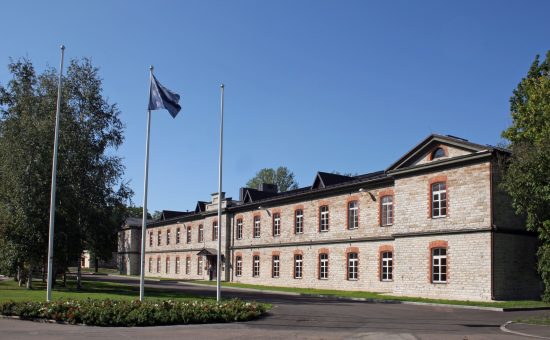A NATO cyberdefense center is to be housed in this former military barracks in Tallinn, Estonia.
(Foreign Ministry of Estonia)
PARIS: Nearly a year after Estonia weathered an onslaught of cyberattacks, its name has become a rallying cry for countries pressing to streangthen global cooperation between governments and private Internet service providers to combat computer crime. But some privacy advocates and computer experts remain wary of such efforts.
On Tuesday, the Council of Europe plans to introduce guidelines to aid computer crime investigators, building on a cybercrime treaty that has been signed by 43 nations, including the United States. A controversial proposal would require service providers to give the authorities a list of the types of information that they could offer.
On Wednesday, NATO will present a strategy for countering computer attacks at a meeting for heads of state in Bucharest, with a proposal to create a central cyberdefense authority.
“The attacks on Estonia – directed at services on which Estonian citizens rely – could happen anywhere,” said James Appathurai, a NATO spokesman. “The only way to defend against them is through multinational, multilateral cooperation.”
That kind of military talk concerns privacy advocates and computer experts, who fear that private companies will be pressed into service to police users as part of these strategies.
“One of the great consequences of all of this is that an agenda is created for a society that is under surveillance,” said Peter Sommers, a senior research fellow at the London School of Economics and author of “The Hacker’s Handbook,” written under the pseudonym Hugo Cornwall. “And in the panic, we lose the quality of control.”
